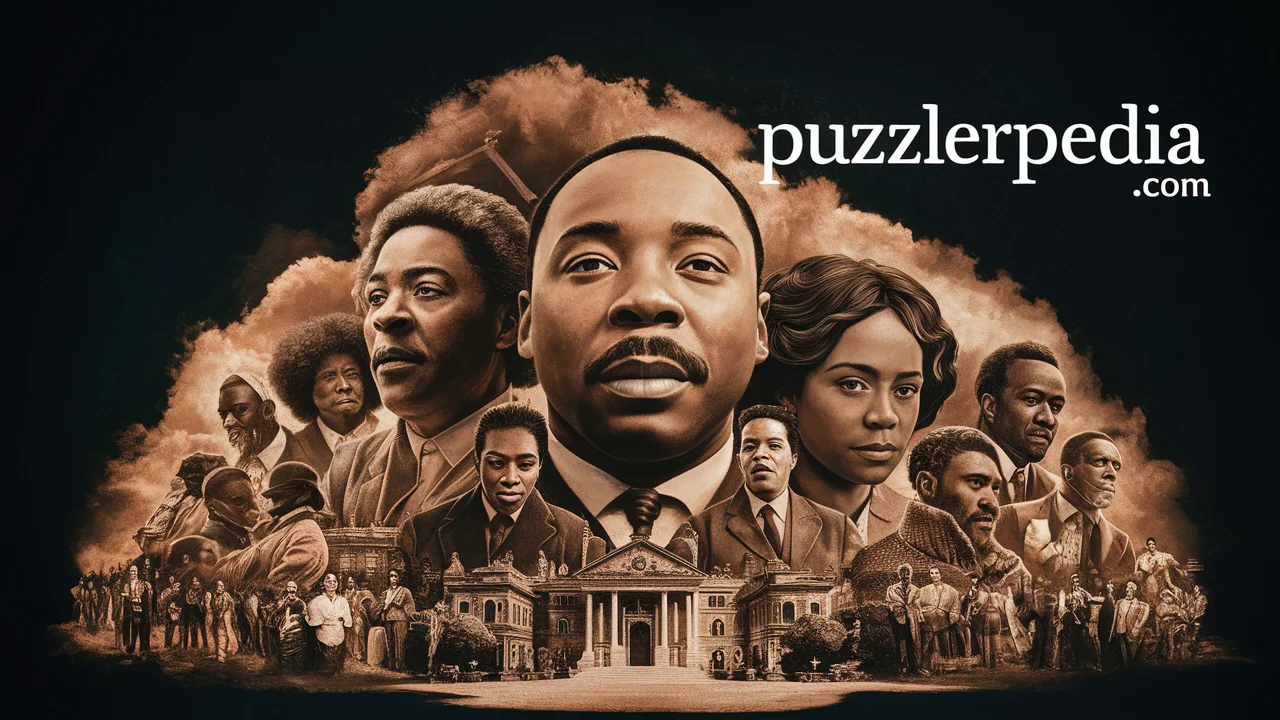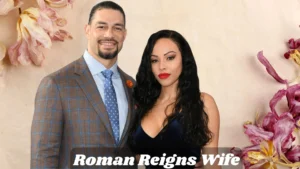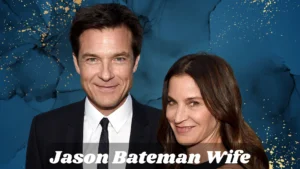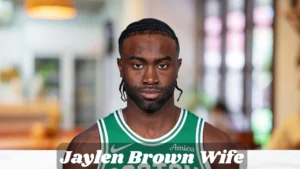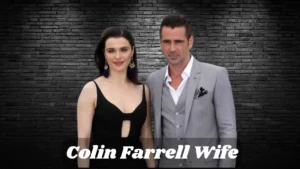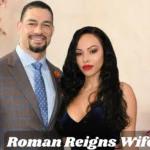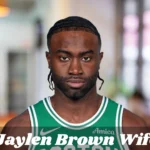Black history is a rich tapestry woven with the achievements, struggles, and stories of individuals who have made monumental impacts on our world.
Riddles are a fun and engaging way to explore this important history, offering both educational value and entertainment. In this collection, you’ll find a diverse array of riddles that highlight significant figures, events, and cultural milestones within Black history. Each riddle is designed to challenge your knowledge while celebrating the contributions of the Black community.
Riddles about Pioneering Figures
- Who was the first African American woman to win a Nobel Prize in Literature? 📚🏆
Answer: Toni Morrison. - Who is known as the “King of Pop” and has a famous moonwalk dance? 🎤🕺
Answer: Michael Jackson. - Who was the African American scientist known for his work with peanuts and sweet potatoes? 🌰🧪
Answer: George Washington Carver. - Who was the first African American president of the United States? 🇺🇸🕴️
Answer: Barack Obama. - Who was the African American civil rights leader famous for his “I Have a Dream” speech? 🗣️🌟
Answer: Martin Luther King Jr. - Who was the first African American woman to be elected to the U.S. Congress? 🏛️👩⚕️
Answer: Shirley Chisholm. - Who is known for her role as the first Black woman in space? 🚀🌌
Answer: Dr. Mae Jemison. - Who was the prominent African American abolitionist and author of “Narrative of the Life of Frederick Douglass”? 📖✊
Answer: Frederick Douglass. - Who was the African American inventor of the traffic light? 🚦🔧
Answer: Garrett Morgan. - Who was the “Queen of Soul” with hits like “Respect” and “Natural Woman”? 🎶👑
Answer: Aretha Franklin. - Who was the famous African American boxer known as “The Greatest”? 🥊👊
Answer: Muhammad Ali. - Who was the African American artist known for her “Black” series of paintings? 🎨🖼️
Answer: Jean-Michel Basquiat. - Who was the pioneering African American ballet dancer who founded the Dance Theater of Harlem? 💃🏿🎭
Answer: Arthur Mitchell. - Who was the African American playwright who wrote “A Raisin in the Sun”? 🎭✍️
Answer: Lorraine Hansberry. - Who was the African American inventor who improved the design of the light bulb? 💡🔧
Answer: Lewis Latimer. - Who was the African American lawyer who became the first Black Supreme Court Justice? ⚖️👨🏾⚖️
Answer: Thurgood Marshall. - Who was the African American entrepreneur who founded the Black Wall Street? 🏢💼
Answer: O.W. Gurley. - Who was the African American woman who started the first national Black sorority, Alpha Kappa Alpha? 🎓🌟
Answer: Epsilon Pi Sigma. - Who was the African American singer and actor known for his role in “Porgy and Bess”? 🎤🎭
Answer: Paul Robeson. - Who was the African American poet who wrote “The Negro Speaks of Rivers”? 🖋️🌊
Answer: Langston Hughes. - Who was the African American actress who won an Academy Award for “Lilies of the Field”? 🎥🏆
Answer: Sidney Poitier. - Who was the African American inventor known for creating the first home security system? 🏠🔒
Answer: Marie Van Brittan Brown. - Who was the African American mathematician who calculated trajectories for NASA’s early space missions? 🛰️📐
Answer: Katherine Johnson. - Who was the African American singer known for the hit song “What a Wonderful World”? 🎶🌍
Answer: Louis Armstrong. - Who was the African American leader and educator who founded Tuskegee Institute? 🎓🏛️
Answer: Booker T. Washington. - Who was the African American writer and civil rights activist who wrote “The Autobiography of Malcolm X”? 📚✊
Answer: Malcolm X. - Who was the African American baseball player who broke the color barrier in Major League Baseball? ⚾🏆
Answer: Jackie Robinson. - Who was the African American journalist who wrote “The Crisis” magazine? 📰✍️
Answer: W.E.B. Du Bois. - Who was the African American actress who became the first Black woman to win an Emmy Award? 🎭🏆
Answer: Juanita Moore. - Who was the African American poet and novelist known for her work “Their Eyes Were Watching God”? 📚✨
Answer: Zora Neale Hurston.
Riddles about Key Historical Events
- What year did the Emancipation Proclamation go into effect? 📜✊
Answer: 1863. - Which historical event marked the end of segregation in public schools? 🏫✋
Answer: Brown v. Board of Education. - What movement aimed to end racial segregation and discrimination in the 1960s? ✊🚶♂️
Answer: The Civil Rights Movement. - Which landmark Supreme Court case declared “separate but equal” unconstitutional? ⚖️📚
Answer: Brown v. Board of Education. - What was the name of the first African American newspaper founded in 1827? 📰✊
Answer: Freedom’s Journal. - What was the name of the African American-led economic and political organization founded in 1914? 🏛️📈
Answer: The Universal Negro Improvement Association (UNIA). - What historical event is celebrated on February 1st as the start of Black History Month? 📅🗓️
Answer: The birth of Frederick Douglass and Abraham Lincoln. - Which 1963 event featured Martin Luther King Jr.’s famous “I Have a Dream” speech? 🎤🗣️
Answer: The March on Washington. - What Supreme Court decision ended racial segregation in public places in 1954? ⚖️🚶♀️
Answer: Brown v. Board of Education. - What was the name of the African American abolitionist and former slave who became a famous speaker and writer? ✊📖
Answer: Frederick Douglass. - What was the name of the 1964 law that prohibited discrimination based on race, color, religion, sex, or national origin? 📜🚫
Answer: The Civil Rights Act of 1964. - What historic event in 1965 helped secure voting rights for African Americans? 🗳️✊
Answer: The Selma to Montgomery marches. - What was the name of the African American baseball player who broke the Major League Baseball color barrier in 1947? ⚾✊
Answer: Jackie Robinson. - What was the landmark 1896 Supreme Court case that established the “separate but equal” doctrine? ⚖️📜
Answer: Plessy v. Ferguson. - What was the name of the African American organization founded in 1909 to fight for civil rights and racial justice? ✊🗳️
Answer: The National Association for the Advancement of alternative (NAACP). - What movement, led by Martin Luther King Jr., aimed to achieve civil rights through nonviolent protest? 🕊️✊
Answer: The Civil Rights Movement. - What historic Supreme Court ruling in 1954 declared segregation in public schools unconstitutional? ⚖️🏫
Answer: Brown v. Board of Education. - What was the name of the 1960s campaign led by the Student Nonviolent Coordinating Committee to register African American voters in the South? 📋✊
Answer: Freedom Summer. - What was the purpose of the 1963 March on Washington for Jobs and Freedom? 🗣️📢
Answer: To advocate for civil and economic rights for African Americans. - What was the name of the 1965 law that aimed to eliminate literacy tests and other barriers to voting for African Americans? 🗳️✊
Answer: The Voting Rights Act of 1965. - What was the name of the 1944 law that provided educational benefits to returning World War II veterans, including African Americans? 🎓✊
Answer: The GI Bill. - What 1991 event highlighted police brutality and led to the LA riots? 🚓💥
Answer: The Rodney King beating. - What landmark Supreme Court case in 2003 addressed affirmative action in university admissions? ⚖️📚
Answer: Grutter v. Bollinger. - What 1920s movement focused on Black cultural and artistic expression and pride? 🎨🎤
Answer: The Harlem Renaissance. - What was the name of the 1957 law aimed at desegregating public schools? 🏫📜
Answer: The Civil Rights Act of 1957. - What was the name of the 1968 act that sought to end racial discrimination in housing? 🏠📜
Answer: The Fair Housing Act. - What 1980s initiative aimed to address the AIDS crisis in Black communities? 🏥💊
Answer: The Black Leadership Summit. - What 1960s campaign aimed to end segregation in public transportation and other public facilities? 🚌✊
Answer: The Freedom Rides. - What was the name of the 1968 assassination that shocked the nation and sparked riots across the U.S.? 🕵️♂️💔
Answer: Martin Luther King Jr. - What was the name of the 1996 law that aimed to increase funding for historically Black colleges and universities? 🏛️📚
Answer: The Higher Education Act of 1965.
Riddles about Important Milestones
- In what year did the U.S. Supreme Court rule that segregation in public schools was unconstitutional? 🏛️📅
Answer: 1954. - What was the name of the legislation passed in 1964 that prohibited discrimination based on race, color, religion, sex, or national origin? 📜🚫
Answer: The Civil Rights Act. - What year did Barack Obama become the first African American president? 🇺🇸🗳️
Answer: 2008. - What was the name of the 1965 law that aimed to eliminate racial discrimination in voting? 🗳️✊
Answer: The Voting Rights Act. - What event in 1963 featured Martin Luther King Jr.’s “I Have a Dream” speech? 🗣️🌟
Answer: The March on Washington. - What 1920s cultural movement celebrated Black art, literature, and music? 🎨🎷
Answer: The Harlem Renaissance. - What year did the Emancipation Proclamation declare slaves in Confederate states free? 📜🗓️
Answer: 1863. - What was the name of the 1991 incident that exposed police brutality in Los Angeles? 🚓💥
Answer: The Rodney King beating. - What landmark 1968 law aimed to end housing discrimination? 🏠📜
Answer: The Fair Housing Act. - What Supreme Court case in 1896 established the doctrine of “separate but equal”? ⚖️📜
Answer: Plessy v. Ferguson. - What landmark legislation in 1965 aimed to improve education access for African Americans? 📚✊
Answer: The Elementary and Secondary Education Act. - What was the name of the organization founded by Marcus Garvey in 1914 to promote Black pride and economic self-sufficiency? 🏛️🌍
Answer: The Universal Negro Improvement Association (UNIA). - What 1980s campaign aimed to address the HIV/AIDS epidemic in the Black community? 🏥💉
Answer: The Black Leadership Summit. - What 1954 Supreme Court decision declared that “separate but equal” was unconstitutional? ⚖️📜
Answer: Brown v. Board of Education. - What year did the Supreme Court legalize interracial marriage with Loving v. Virginia? 💑⚖️
Answer: 1967. - What was the name of the 1964 act that ended segregation in public places and employment discrimination? 📜🚫
Answer: The Civil Rights Act. - What 1965 act aimed to remove barriers to voting for African Americans? 🗳️✊
Answer: The Voting Rights Act. - What was the name of the movement led by Martin Luther King Jr. that advocated for nonviolent protest and civil rights? 🕊️✊
Answer: The Civil Rights Movement. - What year was the first African American woman elected to Congress? 🏛️✊
Answer: 1968. - What historic Supreme Court ruling in 1955 addressed segregation in public schools? ⚖️📚
Answer: Brown v. Board of Education. - What was the name of the 1944 law that provided educational benefits for returning WWII veterans, including African Americans? 🎓✊
Answer: The GI Bill. - What was the name of the 1960s initiative that aimed to register African American voters in the South? 📋✊
Answer: Freedom Summer. - What 1963 event featured a march on Washington for jobs and freedom? 🗣️📢
Answer: The March on Washington. - What was the name of the 1971 initiative aimed at improving the economic status of Black Americans? 📈📊
Answer: The Black Economic Development Conference. - What 2008 milestone was achieved by Barack Obama? 🇺🇸🎉
Answer: Becoming the first African American President of the U.S. - What 1965 act aimed to end racial discrimination in housing? 🏠📜
Answer: The Fair Housing Act. - What event in 1968 led to the establishment of the Black Power movement? 🗣️✊
Answer: The assassination of Martin Luther King Jr. - What was the name of the 1996 law that increased funding for historically Black colleges and universities? 🏛️📚
Answer: The Higher Education Act of 1965. - What year did the Supreme Court rule that segregation in public schools was unconstitutional? 🏛️📅
Answer: 1954. - What was the name of the 1957 act aimed at protecting the voting rights of African Americans? 🗳️✊
Answer: The Civil Rights Act of 1957.
Riddles about Cultural Achievements
- What 1990 film featured a famous performance by Denzel Washington as Malcolm X? 🎥✊
Answer: “Malcolm X.” - Who was the African American author of the 1937 novel “Their Eyes Were Watching God”? 📚✨
Answer: Zora Neale Hurston. - What film directed by Ava DuVernay explores the history of racial injustice in America? 🎥📜
Answer: “13th.” - What was the name of the influential jazz musician known as “Satchmo”? 🎷🎺
Answer: Louis Armstrong. - What iconic musical duo is known for the hit song “Ebony and Ivory”? 🎹🎤
Answer: Paul McCartney and Stevie Wonder. - What 1989 film featured an all-Black cast and was directed by Spike Lee? 🎥👥
Answer: “Do the Right Thing.” - Who was the famous African American artist known for his “Black” series of paintings? 🎨🖼️
Answer: Jean-Michel Basquiat. - What book, published in 1994, is a memoir by Maya Angelou about her childhood? 📚👶
Answer: “I Know Why the Caged Bird Sings.” - What was the name of the influential African American musician who helped popularize rock and roll? 🎸🎤
Answer: Chuck Berry. - What 2004 film features a powerful performance by Jamie Foxx as Ray Charles? 🎥🎹
Answer: “Ray.” - What was the name of the 1991 film that depicted the life of the influential African American singer and civil rights activist? 🎥🎤
Answer: “Malcolm X.” - What book by James Baldwin explores race relations in America? 📚🌍
Answer: “The Fire Next Time.” - What 2018 film directed by Ryan Coogler became a cultural phenomenon and featured the first Black superhero in the Marvel Cinematic Universe? 🎥🦸♂️
Answer: “Black Panther.” - What African American author wrote the critically acclaimed book “Beloved”? 📚✨
Answer: Toni Morrison. - What 1970s TV show featured an all-Black cast and was known for its portrayal of urban life? 📺🏙️
Answer: “Good Times.” - What song by Marvin Gaye addresses social issues and is considered a classic of soul music? 🎶🌟
Answer: “What’s Going On.” - What African American actress won an Academy Award for her role in “Monster’s Ball”? 🎥🏆
Answer: Halle Berry. - What was the name of the musical genre that emerged from the Harlem Renaissance and includes artists like Duke Ellington? 🎷🎵
Answer: Jazz. - What 1997 film starring Denzel Washington depicts the life of a Black lawyer in a fictional high-stakes courtroom drama? 🎥⚖️
Answer: “The Hurricane.” - What African American poet and author is known for her book “The Complete Collected Poems of Maya Angelou”? 📚🌟
Answer: Maya Angelou. - What 2016 film, directed by Barry Jenkins, tells the story of a young Black man coming to terms with his sexuality? 🎥💔
Answer: “Moonlight.” - What is the name of the powerful song by Sam Cooke that became an anthem for the Civil Rights Movement? 🎶✊
Answer: “A Change Is Gonna Come.” - What television series, created by Shonda Rhimes, features an African American female lawyer as its central character? 📺⚖️
Answer: “How to Get Away with Murder.” - What 1998 film featured an all-Black cast and was a groundbreaking representation of African American culture in cinema? 🎥🎤
Answer: “The Best Man.” - What 2014 film about the life of the first Black president was directed by Peter Kosminsky? 🎥🇺🇸
Answer: “The Obama Years.” - What 1999 film starred Laurence Fishburne and Angela Bassett as a couple struggling to make ends meet? 🎥💔
Answer: “The Matrix.” - What was the name of the 1960s TV show that focused on the experiences of an African American family? 📺🏠
Answer: “The Jeffersons.” - What classic 1965 film featured Sidney Poitier as a schoolteacher in a racially charged environment? 🎥🎓
Answer: “To Sir, with Love.” - What was the name of the famous Harlem-based dance style that became popular in the 1920s? 💃🏿🎶
Answer: The Charleston. - What 2006 film starring Don Cheadle depicts the Rwandan genocide and its aftermath? 🎥💔
Answer: “Hotel Rwanda.”
Riddles about Influential Movements
- What was the name of the 1960s campaign aimed at ending racial segregation on public transportation? 🚌✊
Answer: The Freedom Rides. - What was the name of the 1917 movement that advocated for African American rights and global unity? 🌍✊
Answer: The Pan-African Movement. - What was the name of the 1960s movement that aimed to secure voting rights for African Americans? 🗳️✊
Answer: The Voting Rights Movement. - What 1960s civil rights campaign was led by Martin Luther King Jr. and focused on economic justice? 📈✊
Answer: The Poor People’s Campaign. - What was the name of the 1970s movement focused on improving economic opportunities for African Americans? 💼📈
Answer: The Black Power Movement. - What 1960s movement aimed to desegregate public schools and end discriminatory practices? 🏫✊
Answer: The Civil Rights Movement. - What was the name of the 1920s cultural movement that celebrated Black art, literature, and music? 🎨🎶
Answer: The Harlem Renaissance. - What was the name of the campaign in the 1980s that sought to address the HIV/AIDS crisis in Black communities? 🏥💊
Answer: The Black Leadership Summit. - What 1970s initiative focused on increasing the political representation of African Americans? 🗳️📈
Answer: The Black Political Empowerment Movement. - What was the name of the 1960s initiative that aimed to end segregation and promote civil rights? ✊🚶♂️
Answer: The Civil Rights Movement. - What movement in the 1960s aimed to end job discrimination and improve economic opportunities for African Americans? 💼📈
Answer: The Economic Justice Movement. - What was the name of the 1950s campaign to end segregation in public schools? 🏫✊
Answer: The School Desegregation Movement. - What was the name of the 1980s campaign that aimed to address racial disparities in healthcare? 🏥🌍
Answer: The Health Equity Movement. - What was the name of the 1960s campaign focused on increasing African American voter registration? 🗳️✊
Answer: The Freedom Summer. - What movement, led by Malcolm X, sought to promote Black self-determination and independence? ✊📜
Answer: The Black Nationalist Movement. - What was the name of the 1920s movement that aimed to establish a global Black identity and unity? 🌍✊
Answer: The Pan-African Movement. - What was the name of the 1960s initiative that aimed to address economic inequality and promote social justice? 💼📈
Answer: The Economic Justice Movement. - What was the name of the 1980s initiative aimed at improving educational access for African Americans? 🎓📚
Answer: The Education Equality Movement. - What was the name of the 1990s campaign that focused on increasing Black political representation and influence? 🗳️📈
Answer: The Political Empowerment Movement. - What movement aimed to address racial and economic inequality in the 1960s and 1970s? ✊📈
Answer: The Economic Justice Movement. - What was the name of the 1970s campaign focused on increasing Black participation in the arts? 🎨🎭
Answer: The Black Arts Movement. - What was the name of the 1960s initiative that sought to end racial segregation in public spaces? 🏛️✊
Answer: The Civil Rights Movement. - What was the name of the 1960s movement that focused on ending racial segregation in public facilities? 🚶♂️✊
Answer: The Freedom Rides. - What 1980s movement aimed to increase the representation of African Americans in the media? 📺🌟
Answer: The Black Media Movement. - What was the name of the 1960s campaign that sought to address racial injustice and promote equality? ✊📢
Answer: The Civil Rights Movement. - What was the name of the 1950s initiative that aimed to end segregation in public education? 🏫✊
Answer: The School Desegregation Movement. - What was the name of the 1960s campaign that focused on improving economic opportunities for Black Americans? 💼📈
Answer: The Economic Justice Movement. - What was the name of the 1980s movement that aimed to address disparities in healthcare access for African Americans? 🏥🌍
Answer: The Health Equity Movement. - What 1970s movement focused on increasing Black representation in government and politics? 🗳️📈
Answer: The Black Political Empowerment Movement. - What was the name of the 1960s campaign that sought to end racial segregation in public facilities? 🚶♀️✊
Answer: The Freedom Rides.
Riddles about Landmark Achievements
- Who was the first African American woman to win a Nobel Prize in Literature? 📚🏆
Answer: Toni Morrison. - What 1963 event featured Martin Luther King Jr.’s famous “I Have a Dream” speech? 🗣️🌟
Answer: The March on Washington. - What 2008 milestone was achieved by Barack Obama? 🇺🇸🎉
Answer: Becoming the first African American President of the U.S. - What was the name of the 1996 law that increased funding for historically Black colleges and universities? 🏛️📚
Answer: The Higher Education Act of 1965. - What year did the Supreme Court rule that segregation in public schools was unconstitutional? 🏛️📅
Answer: 1954. - What 1964 act aimed to end racial segregation in public places and employment discrimination? 📜🚫
Answer: The Civil Rights Act. - What was the name of the 1920s movement that celebrated Black cultural and artistic achievements? 🎨🎶
Answer: The Harlem Renaissance. - What 1965 act aimed to end racial discrimination in voting? 🗳️✊
Answer: The Voting Rights Act. - What 1970s campaign focused on improving the economic status of African Americans? 📈💼
Answer: The Black Power Movement. - What was the name of the 1960s movement that aimed to address racial injustice and promote civil rights? 🗣️✊
Answer: The Civil Rights Movement. - What 1980s campaign addressed the HIV/AIDS epidemic in Black communities? 🏥💊
Answer: The Black Leadership Summit. - What was the name of the 1960s initiative that aimed to increase African American voter registration? 📋✊
Answer: Freedom Summer. - What year did the first African American woman serve as a U.S. Supreme Court Justice? ⚖️👩🏾⚖️
Answer: 1967. - What 1950s act aimed to end segregation in public education? 🏫✊
Answer: The School Desegregation Movement. - What 1960s act aimed to improve education access for African Americans? 📚✊
Answer: The Elementary and Secondary Education Act. - What was the name of the 1991 film that featured an all-Black cast and was directed by Spike Lee? 🎥👥
Answer: “Do the Right Thing.” - What 2014 film, directed by Ryan Coogler, featured the first Black superhero in the Marvel Cinematic Universe? 🎥🦸♂️
Answer: “Black Panther.” - What 1970s TV show featured an all-Black cast and was known for its portrayal of urban life? 📺🏙️
Answer: “Good Times.” - What was the name of the influential African American musician who helped popularize rock and roll? 🎸🎤
Answer: Chuck Berry. - What 1998 film featured an all-Black cast and was a groundbreaking representation of African American culture in cinema? 🎥🎤
Answer: “The Best Man.” - What African American poet and author is known for her book “The Complete Collected Poems of Maya Angelou”? 📚🌟
Answer: Maya Angelou. - What was the name of the 1980s initiative aimed at improving educational access for African Americans? 🎓📚
Answer: The Education Equality Movement. - What was the name of the 1960s TV show that focused on the experiences of an African American family? 📺🏠
Answer: “The Jeffersons.” - What 2016 film, directed by Barry Jenkins, tells the story of a young Black man coming to terms with his sexuality? 🎥💔
Answer: “Moonlight.” - What 1970s TV show featured an all-Black cast and was known for its portrayal of urban life? 📺🏙️
Answer: “Good Times.” - What 1999 film starred Laurence Fishburne and Angela Bassett as a couple struggling to make ends meet? 🎥💔
Answer: “The Matrix.” - What was the name of the 1957 act aimed at protecting the voting rights of African Americans? 🗳️✊
Answer: The Civil Rights Act of 1957. - What 2006 film starring Don Cheadle depicts the Rwandan genocide and its aftermath? 🎥💔
Answer: “Hotel Rwanda.” - What 2004 film features a powerful performance by Jamie Foxx as Ray Charles? 🎥🎹
Answer: “Ray.” - What 2018 film, directed by Ryan Coogler, became a cultural phenomenon and featured the first Black superhero in the Marvel Cinematic Universe? 🎥🦸♂️
Answer: “Black Panther.”
Riddles about Prominent Figures
- Who was the first African American to win a Nobel Peace Prize? 🌟🏆
Answer: Martin Luther King Jr. - Who was the African American author of the 1937 novel “Their Eyes Were Watching God”? 📚✨
Answer: Zora Neale Hurston. - Who was the first African American woman to become a U.S. Supreme Court Justice? ⚖️👩🏾⚖️
Answer: Thurgood Marshall. - Who was the influential African American leader who founded the Universal Negro Improvement Association (UNIA)? 🌍📜
Answer: Marcus Garvey. - Who was the African American musician known as “Satchmo”? 🎺🎷
Answer: Louis Armstrong. - Who was the famous African American singer and civil rights activist known for the song “A Change Is Gonna Come”? 🎶✊
Answer: Sam Cooke. - Who was the African American author who won the Pulitzer Prize for her novel “Beloved”? 📚🏆
Answer: Toni Morrison. - Who was the prominent African American activist and leader of the Black Panther Party? ✊📜
Answer: Huey P. Newton. - Who was the African American author of “The Autobiography of Malcolm X”? 📚✨
Answer: Malcolm X. - Who was the influential African American poet and author known for her memoir “I Know Why the Caged Bird Sings”? 📚🌟
Answer: Maya Angelou. - Who was the African American lawyer who argued Brown v. Board of Education before the Supreme Court? ⚖️📜
Answer: Thurgood Marshall. - Who was the African American actress who won an Academy Award for her role in “Monster’s Ball”? 🎥🏆
Answer: Halle Berry. - Who was the African American civil rights leader known for his leadership in the Southern Christian Leadership Conference (SCLC)? ✊📜
Answer: Martin Luther King Jr. - Who was the influential African American artist known for his “Black” series of paintings? 🎨🖼️
Answer: Jean-Michel Basquiat. - Who was the African American musician known for pioneering the rock and roll genre? 🎸🎤
Answer: Chuck Berry. - Who was the African American activist known for his advocacy of Black nationalism and self-reliance? ✊📜
Answer: Malcolm X. - Who was the African American actress known for her role in “The Help” and “How to Get Away with Murder”? 🎥🌟
Answer: Viola Davis. - Who was the prominent African American writer and activist known for his work “The Fire Next Time”? 📚🔥
Answer: James Baldwin. - Who was the African American athlete known for his activism during the 1968 Olympics? 🏅✊
Answer: Tommie Smith. - Who was the African American author known for his influential book “Native Son”? 📚🌟
Answer: Richard Wright. - Who was the influential African American educator and founder of Tuskegee University? 📚🏛️
Answer: Booker T. Washington. - Who was the African American singer known for her hit song “Respect”? 🎤🌟
Answer: Aretha Franklin. - Who was the African American artist and activist known for her work in the Black Arts Movement? 🎨✊
Answer: Lorraine Hansberry. - Who was the African American politician who served as the first Black U.S. Secretary of State? 🌟📜
Answer: Colin Powell. - Who was the African American poet and activist known for her powerful works on race and gender? 📚🌟
Answer: Audre Lorde. - Who was the African American scholar and author known for his work “The Souls of Black Folk”? 📚🌟
Answer: W.E.B. Du Bois. - Who was the influential African American musician known for his work in jazz and bebop? 🎷🎺
Answer: Dizzy Gillespie. - Who was the African American actress known for her role in the film “The Color Purple”? 🎥🌟
Answer: Oprah Winfrey. - Who was the prominent African American civil rights leader and co-founder of the NAACP? ✊📜
Answer: W.E.B. Du Bois. - Who was the African American poet and author known for her collection “For Colored Girls”? 📚🌟
Answer: Ntozake Shange.
Riddles about Social Changes
- What was the name of the 1960s movement that aimed to end racial segregation in public facilities? 🚶♂️✊
Answer: The Civil Rights Movement. - What was the name of the 1954 Supreme Court decision that declared segregation in public schools unconstitutional? 🏛️📜
Answer: Brown v. Board of Education. - What 1965 legislation aimed to eliminate racial discrimination in voting? 🗳️✊
Answer: The Voting Rights Act. - What 1964 act aimed to end racial segregation in public places and employment discrimination? 📜🚫
Answer: The Civil Rights Act. - What was the name of the 1991 event that exposed police brutality in Los Angeles? 🚓💥
Answer: The Rodney King beating. - What was the name of the 1960s campaign that aimed to increase African American voter registration? 📋✊
Answer: Freedom Summer. - What 1963 event featured Martin Luther King Jr.’s famous “I Have a Dream” speech? 🗣️🌟
Answer: The March on Washington. - What 1980s campaign aimed to address the HIV/AIDS crisis in the Black community? 🏥💊
Answer: The Black Leadership Summit. - What was the name of the 1968 law that aimed to end housing discrimination? 🏠📜
Answer: The Fair Housing Act. - What 1954 Supreme Court decision declared that “separate but equal” was unconstitutional? ⚖️📜
Answer: Brown v. Board of Education. - What was the name of the 1965 act that aimed to improve education access for African Americans? 📚✊
Answer: The Elementary and Secondary Education Act. - What was the name of the 1970s initiative that aimed to improve the economic status of Black Americans? 📈📊
Answer: The Black Economic Development Conference. - What 1965 act aimed to end racial discrimination in housing? 🏠📜
Answer: The Fair Housing Act. - What was the name of the 1960s movement that focused on ending job discrimination and improving economic opportunities for African Americans? 💼📈
Answer: The Economic Justice Movement. - What was the name of the 1980s campaign focused on improving educational access for African Americans? 🎓📚
Answer: The Education Equality Movement. - What was the name of the 1970s TV show that featured an all-Black cast and was known for its portrayal of urban life? 📺🏙️
Answer: “Good Times.” - What was the name of the 1960s TV show that focused on the experiences of an African American family? 📺🏠
Answer: “The Jeffersons.” - What 1997 film starred Laurence Fishburne and Angela Bassett as a couple struggling to make ends meet? 🎥💔
Answer: “The Matrix.” - What was the name of the 1970s movement that aimed to increase the participation of African Americans in the arts? 🎨🎭
Answer: The Black Arts Movement. - What was the name of the 1960s campaign that sought to address racial injustice and promote civil rights? ✊📢
Answer: The Civil Rights Movement. - What was the name of the 1950s initiative that aimed to end segregation in public education? 🏫✊
Answer: The School Desegregation Movement. - What 1960s campaign aimed to increase African American political participation and influence? 🗳️📈
Answer: The Black Political Empowerment Movement. - What was the name of the 1980s campaign that focused on addressing racial disparities in healthcare? 🏥🌍
Answer: The Health Equity Movement. - What 1960s act aimed to end racial discrimination in public accommodations? 🏛️🚫
Answer: The Civil Rights Act of 1964. - What was the name of the 1960s movement that focused on improving economic opportunities for African Americans? 💼📈
Answer: The Economic Justice Movement. - What 1990s initiative aimed at increasing Black political representation and influence? 🗳️📈
Answer: The Political Empowerment Movement. - What was the name of the 1960s initiative that sought to desegregate public schools? 🏫✊
Answer: The School Desegregation Movement. - What 1980s campaign addressed the HIV/AIDS crisis in Black communities? 🏥💊
Answer: The Black Leadership Summit. - What 1970s movement focused on increasing Black participation in the arts? 🎨🎭
Answer: The Black Arts Movement. - What was the name of the 1960s campaign that sought to end racial segregation in public facilities? 🚶♀️✊
Answer: The Freedom Rides.
Riddles about Historic Legacies
- Who was the African American civil rights leader who led the Montgomery Bus Boycott? 🚌✊
Answer: Martin Luther King Jr. - Who was the African American inventor known for his work with peanut products? 🥜🔬
Answer: George Washington Carver. - Who was the African American leader who founded the National Association for the Advancement of alternative (NAACP)? 🌟📜
Answer: W.E.B. Du Bois. - Who was the African American poet and writer known for her work “Their Eyes Were Watching God”? 📚🌟
Answer: Zora Neale Hurston. - Who was the African American abolitionist known for his work with the Underground Railroad? 🚂🔗
Answer: Harriet Tubman. - Who was the African American political leader who served as the first Black Secretary of State? 🏛️📜
Answer: Colin Powell. - Who was the African American artist known for his Harlem Renaissance works? 🎨🌟
Answer: Jacob Lawrence. - Who was the African American actress who won an Academy Award for her role in “Monster’s Ball”? 🎥🏆
Answer: Halle Berry. - Who was the African American singer known for her powerful voice and song “Respect”? 🎤🌟
Answer: Aretha Franklin. - Who was the African American leader who co-founded the Southern Christian Leadership Conference (SCLC)? ✊📜
Answer: Martin Luther King Jr. - Who was the African American educator who founded the Tuskegee Institute? 📚🏛️
Answer: Booker T. Washington. - Who was the African American civil rights leader who advocated for Black nationalism? ✊📜
Answer: Malcolm X. - Who was the African American artist known for his iconic paintings and role in the Black Arts Movement? 🎨✊
Answer: Jean-Michel Basquiat. - Who was the African American poet and activist known for her collection “For Colored Girls”? 📚🌟
Answer: Ntozake Shange. - Who was the African American musician known for his contributions to jazz and bebop? 🎷🎺
Answer: Dizzy Gillespie. - Who was the African American actress known for her role in “The Color Purple”? 🎥🌟
Answer: Oprah Winfrey. - Who was the African American lawyer who argued Brown v. Board of Education? ⚖️📜
Answer: Thurgood Marshall. - Who was the African American author known for his influential book “Native Son”? 📚🌟
Answer: Richard Wright. - Who was the African American civil rights leader who delivered the “I Have a Dream” speech? 🗣️🌟
Answer: Martin Luther King Jr. - Who was the African American author and educator known for his work “The Souls of Black Folk”? 📚🌟
Answer: W.E.B. Du Bois. - Who was the African American musician known for pioneering the rock and roll genre? 🎸🎤
Answer: Chuck Berry. - Who was the African American poet and author known for her collection “I Know Why the Caged Bird Sings”? 📚🌟
Answer: Maya Angelou. - Who was the African American politician who served as the first Black U.S. Secretary of State? 🌟📜
Answer: Colin Powell. - Who was the African American author who won the Pulitzer Prize for her novel “Beloved”? 📚🏆
Answer: Toni Morrison. - Who was the African American singer known for his song “A Change Is Gonna Come”? 🎶✊
Answer: Sam Cooke. - Who was the African American poet and activist known for her powerful works on race and gender? 📚🌟
Answer: Audre Lorde. - Who was the African American artist known for his “Black” series of paintings? 🎨🖼️
Answer: Jean-Michel Basquiat. - Who was the African American scholar and author known for his work “The Souls of Black Folk”? 📚🌟
Answer: W.E.B. Du Bois. - Who was the African American civil rights leader who advocated for Black nationalism and self-reliance? ✊📜
Answer: Malcolm X. - Who was the African American poet known for her collection “For Colored Girls”? 📚🌟
Answer: Ntozake Shange.
Riddles about Famous Events
- What was the name of the 1963 march that took place in Washington D.C. and featured Martin Luther King Jr.’s “I Have a Dream” speech? 🗣️🌟
Answer: The March on Washington. - What was the name of the 1965 legislation aimed at eliminating racial discrimination in voting? 🗳️✊
Answer: The Voting Rights Act. - What was the name of the 1972 legislation that aimed to address gender discrimination and promote equality? 📜🚻
Answer: The Equal Rights Amendment. - What was the name of the 1964 act that aimed to end racial segregation in public places and employment discrimination? 📜🚫
Answer: The Civil Rights Act. - What was the name of the 1992 riots that occurred in Los Angeles following the acquittal of police officers in the Rodney King case? 🚓💥
Answer: The Los Angeles Riots. - What was the name of the 1954 Supreme Court case that declared segregation in public schools unconstitutional? 🏛️📜
Answer: Brown v. Board of Education. - What was the name of the 1980s campaign that sought to address the HIV/AIDS epidemic in the Black community? 🏥💊
Answer: The Black Leadership Summit. - What was the name of the 1960s movement that aimed to end segregation in public facilities and promote civil rights? 🚶♂️✊
Answer: The Civil Rights Movement. - What was the name of the 1965 march from Selma to Montgomery that was pivotal in the fight for voting rights? 🚶♂️✊
Answer: The Selma to Montgomery March. - What was the name of the 1968 event that was a major protest against the Vietnam War and led to significant changes in U.S. foreign policy? 🌍✊
Answer: The Tet Offensive. - What was the name of the 1997 film that highlighted the impact of racial integration in sports? 🎥🏅
Answer: “Remember the Titans.” - What 1980s event was a significant moment in the campaign to address the HIV/AIDS epidemic in Black communities? 🏥💊
Answer: The Black Leadership Summit. - What was the name of the 1965 act aimed at improving education access for African Americans? 📚✊
Answer: The Elementary and Secondary Education Act. - What 1960s event was a significant turning point in the fight for racial equality and justice? ✊📢
Answer: The Civil Rights Movement. - What was the name of the 1960s initiative that aimed to increase African American political participation? 🗳️📈
Answer: The Black Political Empowerment Movement. - What was the name of the 1970s initiative focused on improving economic opportunities for Black Americans? 📈📊
Answer: The Black Economic Development Conference. - What was the name of the 1954 Supreme Court decision that overturned the “separate but equal” doctrine? ⚖️📜
Answer: Brown v. Board of Education. - What was the name of the 1980s movement focused on increasing educational opportunities for African Americans? 🎓📚
Answer: The Education Equality Movement. - What was the name of the 1960s campaign aimed at ending job discrimination and improving economic opportunities for African Americans? 💼📈
Answer: The Economic Justice Movement. - What was the name of the 1960s campaign focused on ending racial segregation in public places? 🏛️🚫
Answer: The Civil Rights Act of 1964. - What was the name of the 1970s movement that aimed to increase Black participation in the arts? 🎨🎭
Answer: The Black Arts Movement. - What was the name of the 1980s initiative focused on addressing disparities in healthcare access for Black communities? 🏥🌍
Answer: The Health Equity Movement. - What was the name of the 1960s event that aimed to desegregate public schools and promote racial integration? 🏫✊
Answer: The School Desegregation Movement. - What was the name of the 1990s campaign focused on increasing Black political representation and influence? 🗳️📈
Answer: The Political Empowerment Movement. - What was the name of the 1970s initiative aimed at improving the economic status of African Americans? 📈📊
Answer: The Black Economic Development Conference. - What was the name of the 1960s TV show that focused on the experiences of an African American family? 📺🏠
Answer: “The Jeffersons.” - What was the name of the 1991 event that exposed police brutality in Los Angeles? 🚓💥
Answer: The Rodney King beating. - What was the name of the 1970s TV show that featured an all-Black cast and was known for its portrayal of urban life? 📺🏙️
Answer: “Good Times.” - What was the name of the 1965 act that aimed to end racial discrimination in housing? 🏠📜
Answer: The Fair Housing Act. - What was the name of the 1960s movement that aimed to address racial injustice and promote civil rights? ✊📢
Answer: The Civil Rights Movement.

Nicholas Clark is a master puzzle solver with a passion for unraveling the most intricate enigmas. With years of experience and a keen eye for detail, Nicholas brings a unique perspective to every puzzle he encounters. His insightful articles and innovative solutions make him a valued contributor to Puzzlerpedia.
